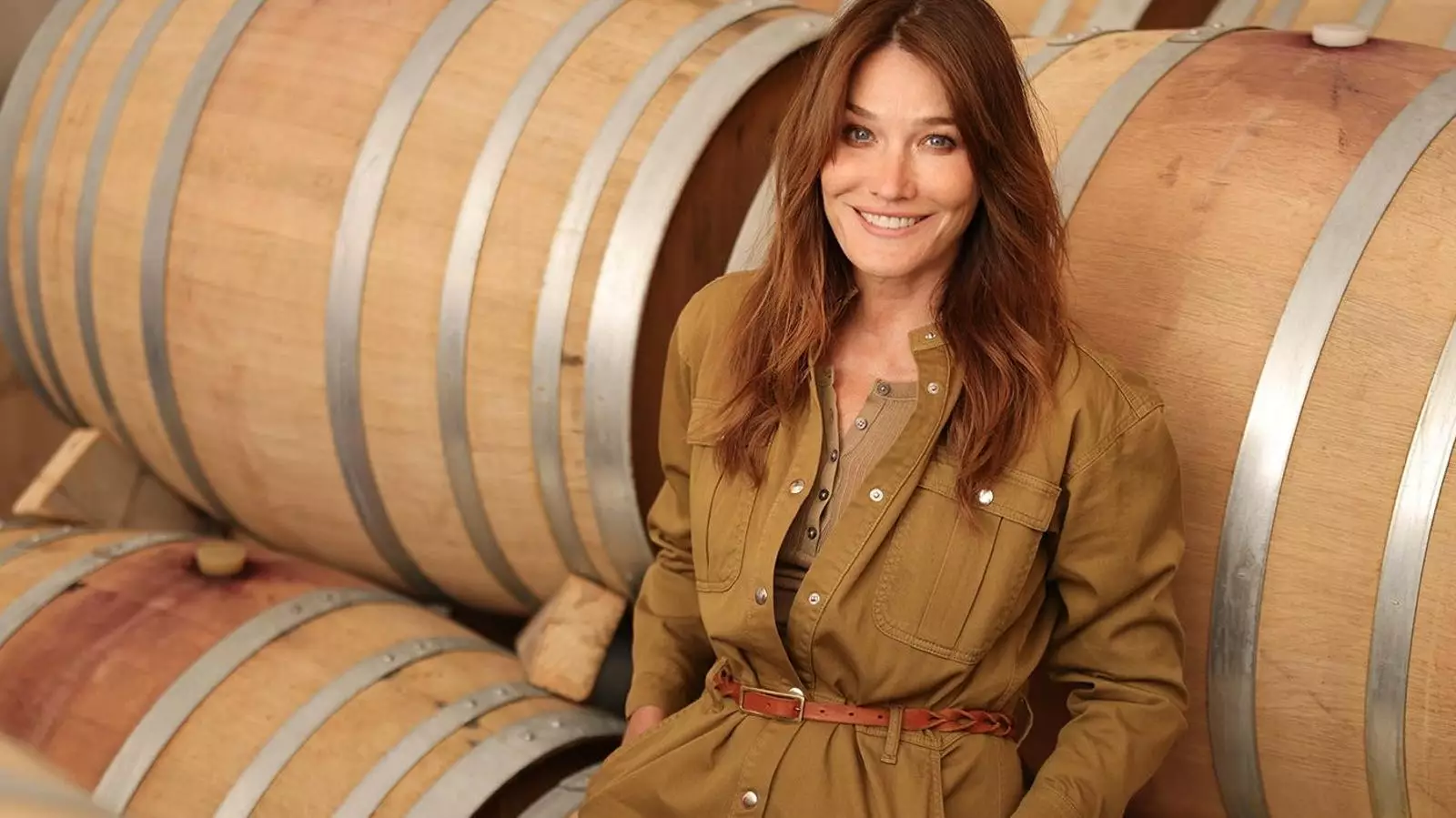In a landscape steeped in tradition, Château d’Estoublon emerges as a provocative statement, challenging the conventional notions of Provençal wine and luxury branding. Instead of resting on the laurels of its long history as a legendary olive oil producer, the estate under new ownership has embarked on an ambitious journey to redefine what high-end Provençal wine can embody. At the heart of this transformation is Roseblood, a rosé designed not merely as a beverage but as a statement of authenticity, craftsmanship, and strategic marketing.
This bold approach reflects a deeper understanding of the evolving global wine market. While Provence’s rosé industry is crowded, often marked by bottles that prioritize aesthetic appeal over quality or longevity, Roseblood seeks to carve out a distinctive space by emphasizing a refined sensory experience rooted in terroir and meticulous production. It’s a clear rejection of the superficial lifestyle branding that dominates the category, signaling a move toward a more serious, artisanal, and emotionally resonant expression of Provence’s beauty and heritage.
Crafting the Spirit of Authenticity
What sets Roseblood apart is its unwavering focus on flavor precision and balance. Unlike many mass-market rosés that emphasize vibrant pink hues and splashy garnishments, Roseblood offers a layered palate that opens with expressive notes of wild strawberry and peach skin, then transitions into bright citrus and mineral undertones, culminating with salted almond and chalky nuances. This complexity is not incidental; it is the result of deliberate vinification and a philosophy that values restraint over excess.
The winemaker, Victor Joyeux, embodies this ethos with a focus on achieving what he calls “balanced complexity.” By carefully selecting grapes—Grenache, Syrah, Cinsault, and Rolle—grown at high altitudes in the Coteaux Varois, he ensures a slow ripening process that enhances aromatic nuance and overall finesse. This approach underscores a commitment to quality over quantity, a stance that appeals to discerning consumers seeking wines with longevity and depth, rather than fleeting Instagram appeal.
Furthermore, the estate’s sustainability commitments bolster this narrative. Certified at high environmental standards (HVE Level 3), Château d’Estoublon illustrates that true luxury in today’s market is rooted in responsibility. Such practices not only preserve the land but serve as a testament to transparency—a quality increasingly valued by the modern wine connoisseur.
Beyond the Vine: Building a Lifestyle Brand
The reimagining of Château d’Estoublon encompasses more than just its flagship rosé; it is part of a holistic lifestyle strategy that aims to position the estate as a beacon of refined living. The investments in hospitality—including a redesigned chateau, a boutique dedicated to local craftsmanship, and a dining experience—speak to a broader vision: creating an immersive product experience that resonates emotionally and authentically with visitors and consumers alike.
Bruni’s influence is palpable here. Her background in fashion and music emphasizes emotions, storytelling, and authenticity—values she seamlessly integrates into the estate’s branding. Her emphasis on “sincere storytelling” and “emotional elegance” positions Roseblood as more than a wine; it is a vessel of cultural identity and personal connection. The non-alcoholic sparkling wine, L’Excessive—a luxurious yet accessible alternative—further exemplifies this forward-thinking approach, catering to a global market increasingly interested in wellness and moderation without sacrificing sophistication.
The estate’s commitment to this diversified portfolio underscores a strategic understanding: to secure its future, Château d’Estoublon must diversify its offerings and cater to shifting consumer preferences. That includes expanding oenotourism, modernizing olive oil branding, and forging partnerships within the luxury sector, such as upcoming collaborations with fashion houses. These moves project a brand that is agile, innovative, and deeply rooted in its authentic Provençal origins.
Challenging the Dominance of Ubiquity
In a wine market where brands like Whispering Angel dominate with ubiquity and lifestyle-driven marketing, Roseblood chooses a more refined path. It is not content with mass appeal or fleeting social media fame; instead, it targets a niche of consumers who demand exclusivity, quality, and storytelling in their purchase. This approach signals a shift in the global perception of Provençal rosé—from a seasonal, casual drink to a serious, collectible investment.
This divergence is strategic. Whispering Angel’s success is rooted in accessibility and visual branding, making it a consistent bestseller worldwide. By contrast, Roseblood’s deliberate scarcity, focus on premium placement at luxury venues, and careful distribution channels aim to cultivate an aura of prestige and desirability. Its early sell-out in key markets and placement in Michelin-starred restaurants point to a successful execution of this upscale positioning.
The estate’s environmental commitments further elevate its profile. Producing wines certified at high sustainability standards aligns with the values of modern luxury consumers, who prioritize authenticity, responsibility, and craftsmanship. This alignment makes Roseblood a compelling alternative to more superficial lifestyle brands, forging a deeper emotional and ethical connection with its audience.
The Future of Provençal Luxury is Here
Ultimately, Château d’Estoublon and Roseblood exemplify a new paradigm where heritage, authenticity, and strategic vision converge to shape the future of luxury wine. By harnessing proven craftsmanship, modern branding, and a commitment to sustainability, they challenge the stereotypes that have long defined Provençal rosé.
This isn’t simply about making a good bottle of wine; it’s about crafting an entire ecosystem around a compelling story of origins, artistry, and sophisticated living. The estate’s holistic approach—integrating wine, olive oil, hospitality, and lifestyle collaborations—reflects an ambition to elevate Provence from a picturesque backdrop to a true center of cultural and luxury innovation. It’s a transformation rooted in daring contrasts: respecting tradition while boldly rewriting what modern luxury can be, one refined sip at a time.

